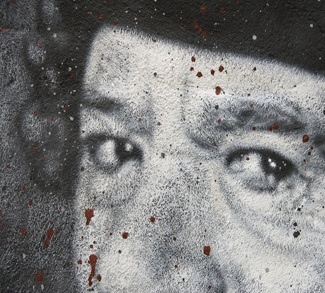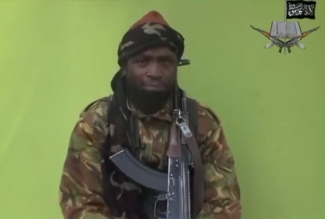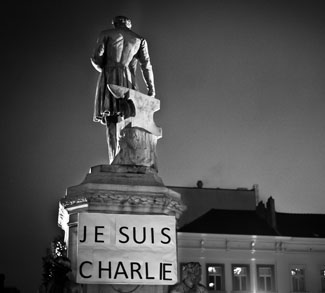Sooner or later it was bound to happen: a shift, or rather a return, to military power in Libya. In the past few weeks, the country has experienced a resumption of heavy fighting on a scale not seen since the anti-Qadhafi war of 2011. Indeed, the exacerbation of Libyan unrest and the prospect of a potential return to military dictatorship have effectively eroded any hope that the post-Qadhafi government will survive for much longer. The Libyan situation is made all the worse by the fact that the clashes in Tripoli and Benghazi have so far been much more complex than simply the good guys (non-Islamists) against the bad guys (Islamists). The main rivalry is between the militias of the town of Zintan, who backed former prime minister Mahmoud Jibril – and then the anti-Islamist component of the General National Congress (GNC) – and the militia that prevails in the city of Misrata, which in turn is generally associated with political forces closer to the Islamists. The rivalry between these two groups dates back to the times of the revolution against the Qadhafi regime, and all attempts so far by politicians to find an agreement between the two have failed.
It is against this sordid background that General Khalifa Haftar emerges, a man who could defeat the militias and form a military government, restoring order and stability. Haftar is controversial due to his role in the coup led by Qadhafi against King Idris in 1969 and his odd alliance with the CIA after a failed military mission in Chad, where he was a unit commander, in 1986. Gen. Haftar and the secular militias in the western part of Libya, Zintan, were very displeased by the appointment of Prime Minister Ahmed Maiteeq in early May. The more secular and largely Berber militias of Zintan (the very same that still holds Saif ul-Islam Qadhafi prisoner) accused Maiteeq of having ties to the pro-Islamist Parliament. Haftar is not alone in his battle against the Islamists and the government. The government, while being unable to do anything, has accused Haftar of wanting to stage a coup.
The already dramatic situation in Libya has worsened – or perhaps intensified – to the point where no return to stability is likely without radical changes of the status quo. A federal option was on the table a few months ago, but it would require a strong central government to implement. Moreover, since Qadhafi’s demise, Libya has experienced a widening wealth gap between rich and poor.
The combination of tribal, religious, and economic struggles suggests that the situation is not likely to improve in the short term. In oil terms, after the first armed clashes of last week, mostly concentrated in Benghazi, the price of oil increased by about USD 0.30 in just a few hours, demonstrating the importance of Libyan production to the world market. Consequently, a new phase of the Libyan conflict – unless resolved quickly and in such a way as to ensure stability rather than the more idealistic concerns of ‘democracy’ – could damage the international oil market in general. As it stands currently, the combination of General Haftar’s militia and its now official allies in Zintan, led by Colonel Mokhtar Fernana, may finally restore stability to Libya, even if this stability more resembles a military dictatorship than a democratic republic. Indeed, the pattern is rather familiar: it has already made an appearance in neighboring Egypt, where the election of General Sisi as President is but a mere formality and just weeks away.
General Haftar has already announced the suspension of the General National Congress (the Parliament) and all its institutions, starting with the removal of Prime Minister Ahmed Miitiq. Miitiq, a millionaire businessman, entered politics quite suddenly on May 4 with the support of the Muslim Brotherhood and other Islamists; he was unable to offer any solution to the crisis, accentuating contrasts between the Islamists and secular groups. Miitiq’s own appointment was approved by a lower parliamentary consensus than constitutionally required, causing many to cry “coup” and blame the Muslim Brotherhood’s Justice and Construction Party. The military has taken notice and Abu Khamada Wanis, head of the Libyan Special Forces, said that his unit is “ready to fight against terrorism” and to support those soldiers and officers already deployed with Haftar, explaining how it was possible for ostensibly non-state elements to deploy jet fighters, helicopters, and heavy artillery pieces. The connection with Egypt’s military, while unstated, is betrayed by the deliberate linking of the Muslim Brotherhood with ‘terrorism.’
Haftar’s attack has not generated any reaction from the ‘international community’ – that is the countries from NATO that facilitated the demise of Qadhafi’s regime. Libya’s democracy, after all, was more of an anarchic jungle, the greatest achievement of which was an almost tenfold reduction in oil production and the virtual elimination of much-needed foreign investment.
General Haftar himself is an interesting character. He has lived many years in the United States and many have considered him to be a CIA asset. He was ‘disgraced’ by Qadhafi after a unit under his command failed its mission during the Libyan invasion of Chad in 1987. Haftar took exile in Virginia in the United States and was more than eager to take up arms against his former 1969 revolutionary ally Qadhafi in March 2011. As for the link to Egypt’s General Sisi, the latter has wanted to wipe the Islamists from neighboring Cyrenaica for quite some time. Similarly, it is not hard to extend this logic and assume that the Zintan militia has enjoyed support from the Algerian military and government (the military is the bulwark of secular institutions).
General Haftar himself is an interesting character. He has lived many years in the United States and many have considered him to be a CIA asset.
Algeria has become very concerned with Libya’s anarchy, which has facilitated the development of extensive links between al-Qaeda groups in Libya and those in Algeria as part of al-Qaeda in the Islamic Maghreb (AQIM). Given the number of foreign ingredients in Libya’s pastiche, it is also necessary to understand how Qatar is involved, and perhaps even Saudi Arabia. Qatar, as in Egypt, has backed the Muslim Brotherhood in Libya while Saudi Arabia and the United Arab Emirates have backed the military; certainly they are backing General Sisi in Egypt and could well be financing General Haftar. The silence from Washington, London, and Paris suggests a level of acquiescence from these governments towards Haftar’s efforts; were they caught by surprise, or has there been some more deliberate participation?
Haftar may well present himself to the West as the military officer who can protect democracy from Islamist tendencies. Of course, this is not very clear and the military’s ultimate goals are also not clear, nor are the chances of a swift victory. Al-Qaeda elements and assorted Islamists might still be able to put up a fight, especially considering the number of weapons circulating in Libya and the rest of North Africa. French and Malian forces backed by the African Union – and to some extent enjoying some support from Tuareg militias – had to put up a strong effort to defeat the Islamists in northern Mali and the repercussions of that war are still being felt. The intensification of Boko Haram’s attacks in Nigeria in the past three months has offered just another reminder of the consequences of the Libyan civil war. The Islamists, just as Qadhafi did for years, may use the tribal weapon, supporting rivalries such as those that persist between the Misrata and Zintan militias. And then there are the various tribes in the vast southern province of Fezzan.
There may be another obstacle in the form of the US presidential race in 2015-2016, and Republican efforts to revive the dormant controversy over the tragic events of Benghazi in 2012 that led to the assassination of Ambassador Stevens and four other American officials in a mysterious attack against the US consulate. Republicans are pushing to launch yet another Congressional investigation – there have been seven such investigations thus far. The target is then Secretary of State, Hillary Clinton, who appears to be preparing to run for the White House. She is accused of not adequately protecting American diplomats and of trying to deceive the country on the nature of the attack. The Democrats have denounced this, highlighting the purely electoral aims just months before the mid-term elections and the upcoming battle for the White House. However, Republican posturing will make it difficult for the Obama administration to get involved in Libya one way or the other. Any support will have to be covert. Some US media outlets, meanwhile, have accused Barack Obama and NATO of sharing responsibility for the disaster in Libya, because they have stepped in to help the rebels overthrow Qadhafi only to leave and fail to help Libyans to restore security and build a new political order.
The risks of another embarrassment for the White House exist because Haftar’s movement, while able to muster greater firepower, is lacking the political foundations upon which al-Sisi delegitimized President Morsi and the Muslim Brotherhood in Egypt in 2013. Field Marshal El Sisi had an official role in the Egyptian state apparatus, having been appointed by Morsi as head of the armed forces. In contrast, Colonel Haftar lacks any formal military or political legitimacy as conferred by the Libyan people. Haftar is following the same road as the militias, even if his intentions are appreciated by many Libyans and foreign powers. Regardless, Haftar seems ready and more than willing to assume a dictatorial role.




